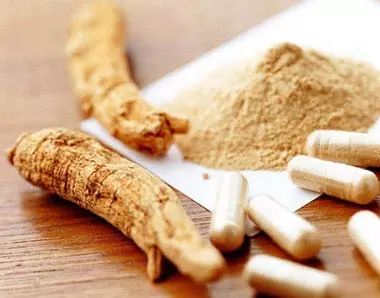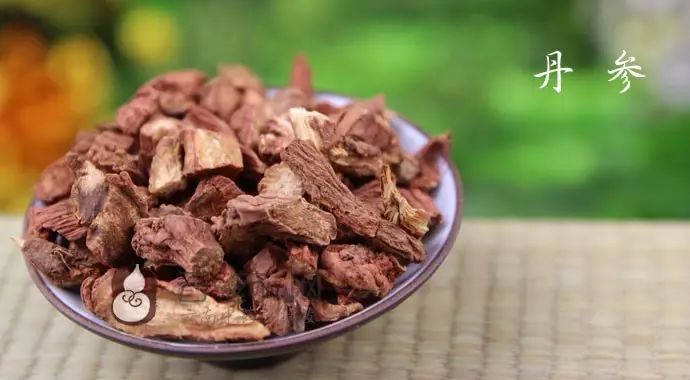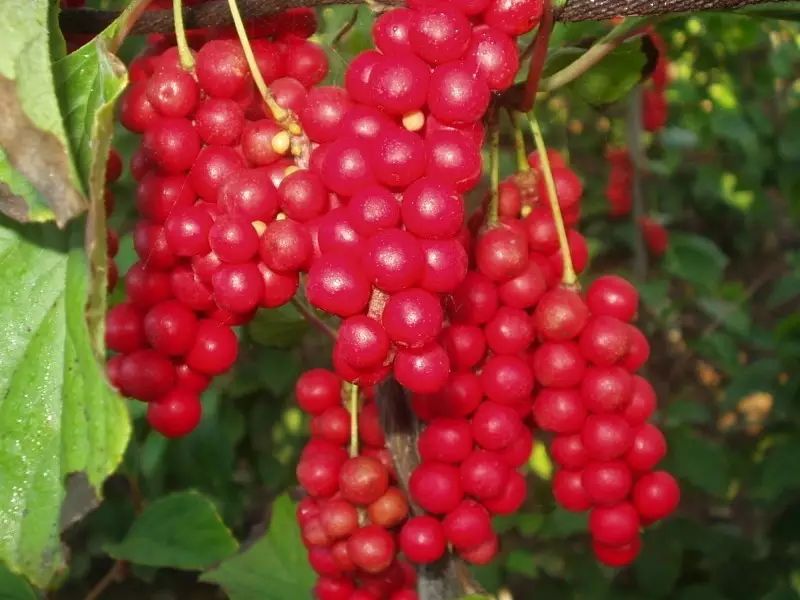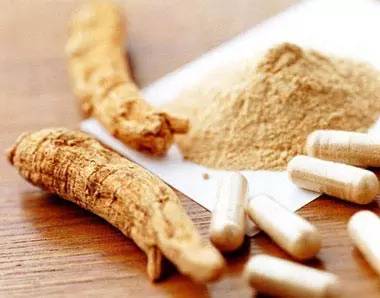
Medical Guidance

Dr. Ge Yan, Renowned TCM Physician in Guangdong Province
Specialization: Chronic refractory gastric diseases (especially atrophic gastritis with atypical hyperplasia, intestinal metaplasia), gastroesophageal reflux disease, peptic ulcers, irritable bowel syndrome, as well as hepatitis B, cirrhosis, fatty liver, and other liver diseases.
Consultation Schedule: Tuesday, Thursday, Saturday mornings; Monday afternoons, Friday evening consultations
Traditional Chinese Medicine (TCM) believes that the liver governs the smooth flow of Qi and regulates emotions. Individuals with liver Qi stagnation often experience low mood, depression, poor appetite, digestive issues, and fatigue. Since blood is stored in the liver, it is particularly important to nourish the liver and replenish blood through diet. This article focuses on three herbs: Dang Gui (Angelica Sinensis), Dan Shen (Salvia Miltiorrhiza), and Wu Wei Zi (Schisandra Chinensis) to teach liver-nourishing techniques, laying a solid foundation for health.
1Dang Gui

Dang Gui, with a sweet and spicy flavor, is warm in nature; it enters the liver, heart, and spleen meridians. It has the effects of nourishing and invigorating blood, regulating menstruation and alleviating pain, and moistening dryness to promote bowel movements; it also has certain liver-nourishing properties.
How to Consume
Dang Gui can be categorized into two parts: the body and the tail, each with different effects. For those with blood deficiency, the body of Dang Gui is more suitable for blood replenishment, while the tail is used for invigorating blood. Whole Dang Gui can nourish blood and invigorate blood circulation, collectively referred to as harmonizing blood. For health maintenance, whole Dang Gui can be used without focusing on its specific properties, suitable for congee or soup. Dang Gui is suitable for individuals with blood deficiency, weakness, dizziness, palpitations, and pale complexion, as well as for women with menstrual irregularities, dysmenorrhea, amenorrhea, or excessive postpartum bleeding and abdominal pain. However, it should be avoided by those with heat-induced bleeding, excessive dampness, diarrhea, or pregnant women. Many believe that blood-nourishing herbs are only for women, but this is not the case. Herbs like Dang Gui are suitable for both men and women, though more commonly used by women. Due to its blood-nourishing and invigorating effects, the consumption amount should not exceed 5-15 grams at a time, as excessive intake may lead to dryness and heat, causing nosebleeds or gum bleeding.
How to Purchase
Generally, Dang Gui is about 10-20 cm long, with a yellow-brown to dark brown skin, and a yellow-white or light yellow-brown cross-section. The best quality has a thick, long, plump, oily main root with a yellow-brown skin and a yellow-white cross-section. If the surface or cross-section shows green-brown, it indicates moisture and deterioration, and should not be used. The best Dang Gui has a strong aroma due to high volatile oil content, with a sweet and slightly bitter taste, and a numbing sensation on the tongue.
How to Cook
Dang Gui Chicken Soup

| # | Ingredients | Amount |
|---|---|---|
| 1 | Dang Gui | 10 grams |
| 2 | Goji Berries | 10 grams |
| 3 | Lamb | 500 grams |
| 4 | Ginger | 2 slices |
Preparation: Combine chicken with Dang Gui and Goji Berries in a pot, add 1500 ml of water (about 6 bowls), bring to a boil over high heat, then simmer for about 1 hour; when the chicken is tender, add ginger and salt to taste, and serve the soup with the meat.
Effects: Chicken replenishes Qi and blood, Dang Gui nourishes and invigorates blood, and Goji Berries nourish the liver and kidneys, and improve vision.Suitable for: Individuals with frequent anemia, dizziness, palpitations, fatigue, and pale complexion due to Qi and blood deficiency.Contraindications: Individuals with heat and dryness.2Dan Shen

Dan Shen, with a bitter flavor and slightly cold nature; it enters the heart and liver meridians. It has the effects of invigorating blood, regulating menstruation, cooling blood to eliminate abscesses, calming the heart, and nourishing blood to calm the spirit.
How to Consume
Dan Shen is one of the ancient Chinese herbs with protective effects on liver function. It can be used in wine, soups, or teas, and can be steeped multiple times. When paired with Yi Mu Cao (Leonurus japonicus) for tea, it enhances blood circulation and regulates liver Qi, making it especially suitable for women. However, those with bleeding tendencies or severe bleeding should avoid Dan Shen. Pregnant women should also avoid it due to potential side effects on the fetus. Although Dan Shen has high medicinal value, it is important to control the dosage for general consumption, typically 3-5 grams at a time. Long-term use may lead to potassium deficiency symptoms, such as general weakness, muscle soreness, loss of appetite, nausea, and abdominal bloating.
How to Purchase
Dan Shen roots are short and thick, with a purple-brown surface, and the outer skin is scaly and flaky, hard and brittle, with a slightly bitter taste. When purchasing, choose thick and purple-red Dan Shen. A simple water test can help identify genuine Dan Shen; authentic Dan Shen will produce a colorless solution when soaked in water, and the herb will swell and lighten in color. In contrast, inferior Dan Shen will turn the water red, and the fake herb will gradually change to a lighter color.
How to Cook
Dan Shen and Hong Hua Wine

| # | Ingredients | Amount |
| 1 | Dan Shen | 50 grams |
| 2 | Hong Hua | 50 grams |
| 3 | White Liquor | 500 ml |
Preparation: Clean Dan Shen and Hong Hua; slice Dan Shen and place it with Hong Hua in a container, add white liquor, and seal. Soak for 7 days, then filter out the residue before consumption. Daily intake should be limited in frequency and amount.Effects: Nourishes Qi, invigorates blood, regulates menstruation, and improves blood circulation.Suitable for: Middle-aged and elderly individuals, those with Qi deficiency and blood stasis, and those prone to chest tightness and pain.Contraindications: Individuals with bleeding tendencies or severe bleeding.
3Wu Wei Zi

Wu Wei Zi, with a sour and sweet flavor, is warm in nature; it enters the lung, heart, and kidney meridians. It has the effects of benefiting Qi and generating fluids, nourishing the kidneys and heart, astringing to stop cough, sweating, and diarrhea, and calming the heart and spirit.
How to Consume
Wu Wei Zi is categorized into southern and northern varieties. Generally, northern Wu Wei Zi has a higher content of active ingredients and better efficacy. Wu Wei Zi can lower serum transaminases and protect liver cells. For those who are chronically fatigued, depleted of essence and blood, or have organ dysfunction, pairing it with Jue Ming Zi (Cassia Seed) and Goji Berries for tea can help protect the liver. For those who easily feel fatigued and dry after sweating, boiling Wu Wei Zi with rock sugar can help generate Qi and fluids; pairing it with Ling Zhi (Reishi Mushroom) and Mai Dong (Ophiopogon) for tea not only calms the spirit but also nourishes the heart and kidneys, suitable for those with anxiety, palpitations, and insomnia. Additionally, those with chronic diarrhea can benefit from Wu Wei Zi tea. It is important to note that the dosage of Wu Wei Zi should not exceed 20 grams at a time, as excessive use may irritate the gastric mucosa and affect health. Furthermore, it should be avoided by those with exterior pathogens, internal heat, or those in the early stages of cough or measles.
How to Purchase
For northern Wu Wei Zi, choose those that are irregularly spherical or oval; the surface should be purple-red or reddish-brown. If the surface is black-red or light red, it is of inferior quality; it should be wrinkled, thick-fleshed, and contain 1-2 kidney-shaped seeds; the fruit should taste sour, and the seeds should have a fragrant, slightly bitter taste. For southern Wu Wei Zi, it should be spherical or oval; the surface should be brown-red, wrinkled, thin-fleshed, and contain 1 seed; the taste should be sour, slightly bitter, and spicy.
How to Cook
Wu Wei Zi and Ge Hua Soup

| # | Ingredients | Amount |
| 1 | Wu Wei Zi | 15 grams |
| 2 | Ge Hua | 5-10 grams |
| 3 | Goji Berries | to taste |
Preparation: Wash 15 grams of Wu Wei Zi and 5-10 grams of Ge Hua, add to 1.5 bowls of water along with Goji Berries, and simmer on low heat for about 20 minutes before consumption.Effects: Ge Hua has liver-protecting and stomach-nourishing effects, and when paired with Wu Wei Zi, it can help with detoxification and liver nourishment.Suitable for: Especially suitable for individuals who frequently consume alcohol.
Contraindications: Individuals with exterior pathogens, internal heat, or those in the early stages of cough or measles.

